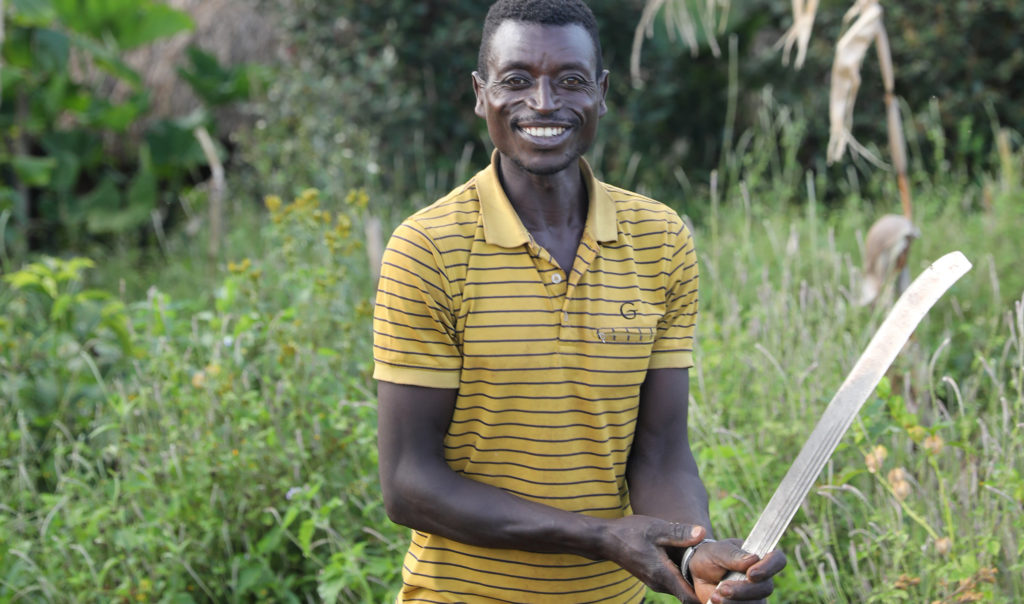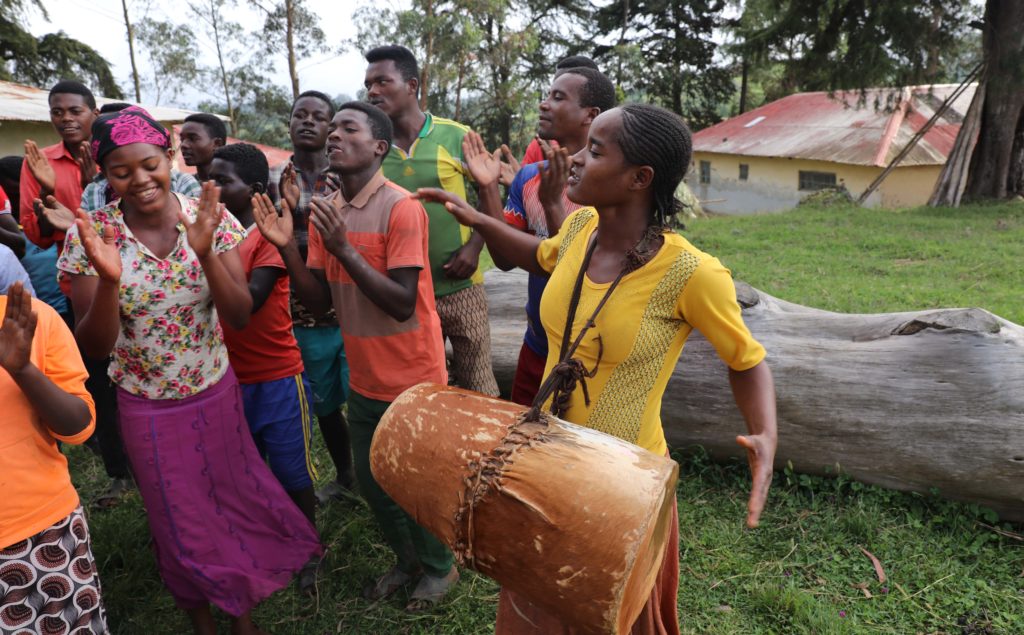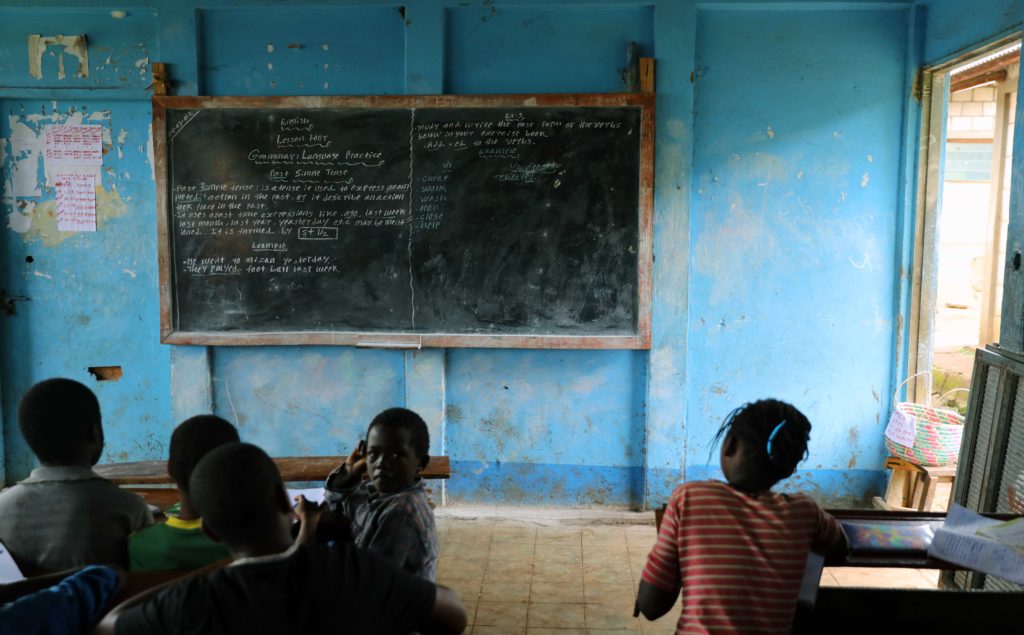On a cool November afternoon, Nick Allen spoke to a room full of people in a community hall in Maji. All were members of the Maji electric cooperative advisory board. Many had walked more than an hour from surrounding kebeles, or villages to be there. They came to hear Allen, NRECA International’s Ethiopia country director, speak to them about what an electric cooperative is, why this model would be a good choice to help bring reliable and affordable electricity to the area, and how NRECA International is working with a well-known non-profit called Maji Development Coalition (MDC) to make it happen.
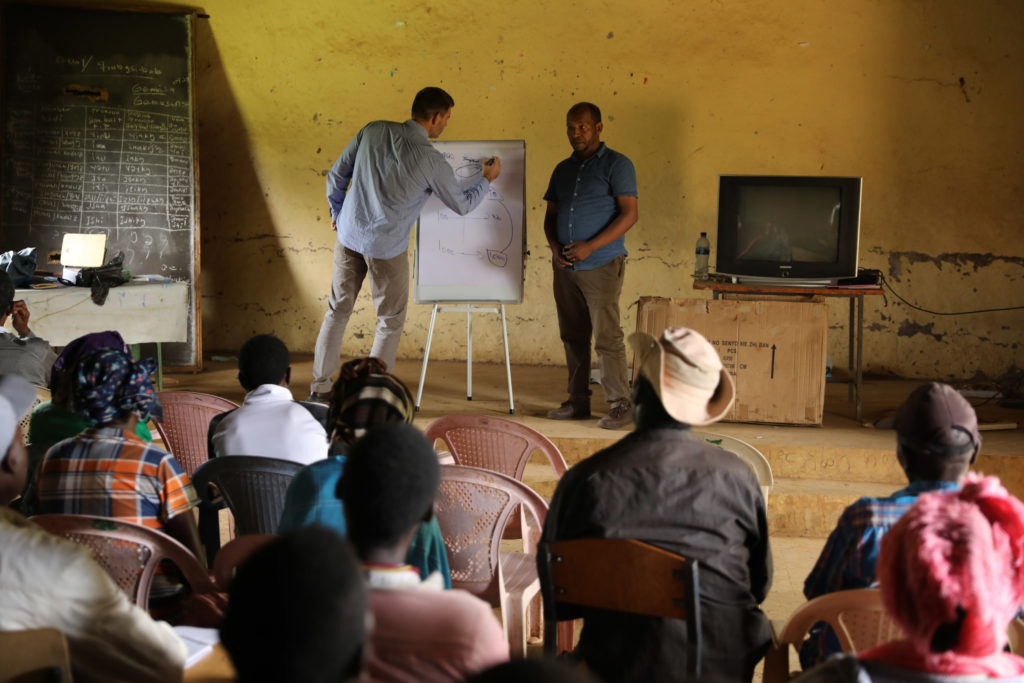
“We are trying to establish an electric cooperative model here in Maji because we feel it’s one of the more sustainable ways of creating an electric utility that serves the needs of its community,” said Allen during a recent trip to this isolated and rural community.
Maji is located in Southwestern Ethiopia about 400 miles by road from Ethiopia’s capital Addis Ababa and is home to about 700 families. About 22 kebeles (villages) with an additional 4800 families surround the area. Electricity is scarce, available only to the very few in town who can afford generators.
A few years ago, Caroline Kurtz, MDC’s executive director, approached NRECA International to help. And the idea to form an electric co-op to bring reliable and affordable electricity to Maji was formed. Originally from Portland, Oregon, Kurtz spent her childhood in Maji and considers it her second home. Last year, she launched an ambitious initiative to provide Maji communities with solar home systems on a lease-to-own basis. Today, more than 250 have been installed, making it possible for families to use light bulbs, charge their mobile phones, and plug in a radio or television. Demand continues to grow, and realizing she didn’t know much about electricity, she brought in some expert help.
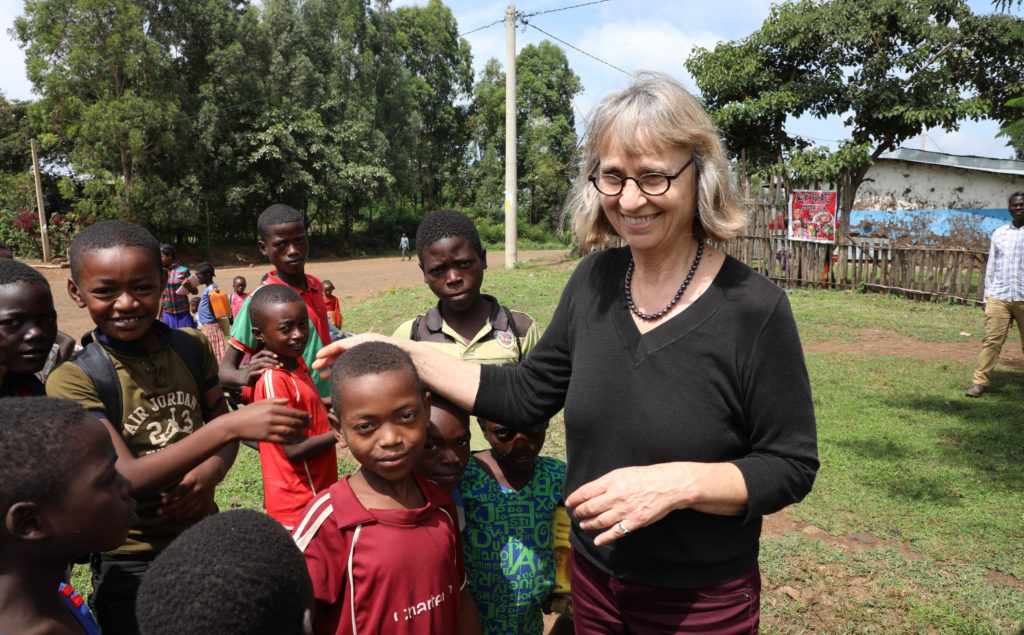
“I knew nothing about technology or electricity or solar, but it opened my eyes to what power poverty means for a community,” said Kurtz during the same trip. “When there’s absolutely no power, development really stalls at a very basic level. Healthcare can’t go forward without electricity. Education can only go so far without electricity. Without electricity, the water has to be drawn from a stream or from a trampled spring and it’s dirty and it’s incredibly burdensome. I think the electric co-op model is the answer that Ethiopia is looking for. And I’m very hopeful that this work here that we’ve already started will become a model for the whole country.”
At the community hall, Allen uses flip charts and markers to illustrate the benefits of the electric co-op model, the concept of ownership, local control, and also lower electricity cost for all. After the meeting was over, a community member shared a few thoughts with Allen.
“I see the electric co-op as a bridge that will help us cross from a time of darkness to a time of light,” said Germaye Korena. “This community has not always been luck when it comes to this issue. And as long as it is convinced of the benefits then the future is bright for the community and the country.”
Creating a self-reliant, financially sustainable electric cooperative, is not going to be easy. The location of Maji in itself poses a challenge. It took Allen and his team two days on the road to get to Maji from the capital. A modern hospital was recently built in Maji, funded by the federal government. But without electricity, medical equipment remains in crates that line the hallways, and hospital beds are empty. The literacy rate remains low and while mobile phones are used and available, the absence of electricity makes communications difficult at best. The nearest town with modern amenities, healthcare, electricity, and reliable communications services, is Mizan, about 60 miles away. Allen and his team know well that to make it work, it’s going to take time, patience, and commitment.
“It does take a while. Community awareness and building trust is a very important piece of that puzzle,” explained Allen. “It all comes down to engaging the community, educating them on what is an electric cooperative, how it works, what it will provide them, and also being transparent about the challenges they will face.”
Allen also emphasized that NRECA International has proven over the years that they’re in it for the long run.
“Whether we embark on this project in Maji or others, we are always looking to commit the time required to form a cooperative the right way,” he said. “Electricity has a way of changing people’s lives in very unexpected ways. There are always surprising developments I think, when electricity is first brought to a community. And I expect no different from Maji.
